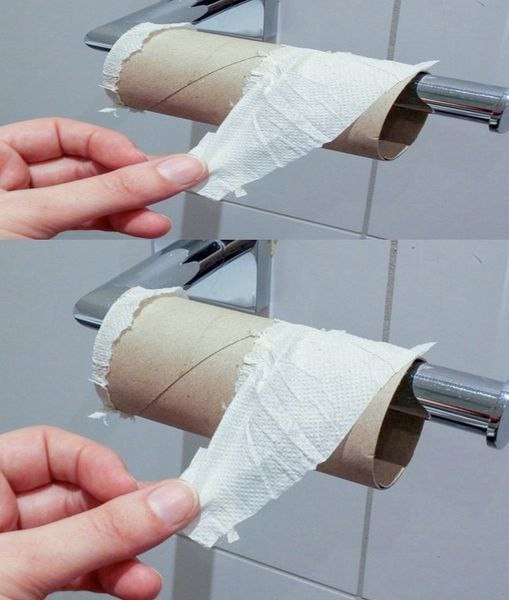ADVERTISEMENT
The End of Toilet Paper? Which Could Soon Replace Our Usual Rolls
Toilet paper has been a household staple for centuries, and its place in our bathrooms seems as secure as ever. But recent developments in sustainability and innovation have sparked discussions about whether toilet paper’s reign is coming to an end. As we continue to face environmental challenges, some forward-thinking solutions are emerging, offering alternatives to the traditional toilet paper roll. So, could the end of toilet paper be near? Let’s take a look at some alternatives that might soon replace our usual rolls.
The Growing Problem with Toilet Paper
While toilet paper may seem like a simple, everyday item, the environmental impact of producing and consuming it is significant. The production of toilet paper requires a lot of water, energy, and trees. In fact, an estimated 27,000 trees are cut down every day to make toilet paper worldwide. Additionally, the production process is water- and energy-intensive, contributing to pollution and deforestation.
These environmental concerns, along with an increased awareness of sustainability, have led many people to consider alternatives to toilet paper. Could we eventually replace the classic roll with something more eco-friendly? Let’s explore some of the promising solutions that might shape the future of our bathroom habits.
1. Bidets: The Toilet Paper Alternative
One of the most well-known and widely adopted alternatives to toilet paper is the bidet. Popular in many countries, especially in Europe and Asia, bidets use water to clean after using the toilet, eliminating the need for toilet paper altogether. There are various types of bidets, from simple handheld sprayers to high-tech toilet seat attachments that come with heated seats, built-in dryers, and adjustable water pressure.
Why are bidets gaining so much attention?
- Environmental Benefits: Since bidets reduce or eliminate the need for toilet paper, they help conserve trees, reduce water waste (compared to toilet paper production), and cut down on the carbon footprint.
- Healthier Option: Many people find bidets to be a gentler, more hygienic alternative to toilet paper, especially for individuals with sensitive skin, allergies, or certain medical conditions.
- Long-Term Savings: Though bidets may have a higher initial cost, they can save money in the long run by reducing the need to buy toilet paper.
Bidet use is becoming more common in North America, and with growing interest, it’s possible that the traditional toilet paper roll could eventually be replaced by this more efficient, eco-friendly solution.
2. Reusable Cloth Wipes
Another option that’s gaining traction in eco-conscious communities is reusable cloth wipes. Made from soft, washable fabrics, these wipes can be used just like toilet paper but are designed to be washed and reused. People who use cloth wipes typically store them in a designated container in the bathroom and wash them with laundry after use.
Why choose reusable wipes?
- Sustainability: Cloth wipes are much more sustainable than single-use toilet paper. Over time, they can significantly reduce the amount of waste created from disposable paper products.
- Cost-Effective: While the upfront cost of cloth wipes may be higher than a roll of toilet paper, they can last for years, making them a long-term cost-effective alternative.
- Comfort and Cleanliness: Many people find cloth wipes to be softer and more comfortable than traditional toilet paper, and they can be more thorough in cleaning.
While cloth wipes aren’t for everyone, they offer an environmentally friendly option that could become more mainstream in the future.
3. Toilet Paper Made from Sustainable Materials
If we can’t completely give up toilet paper, the next best thing is to make it more sustainable. Several companies are now producing eco-friendly toilet paper made from materials like bamboo, recycled paper, and even hemp. These alternatives are biodegradable, compostable, and require far less water and energy to produce than traditional toilet paper made from virgin wood pulp.
Why switch to eco-friendly toilet paper?
- Fewer Trees Cut Down: Bamboo, for example, is a fast-growing grass that can be harvested sustainably without causing deforestation.
- Less Environmental Impact: Eco-friendly toilet paper brands often use fewer chemicals, bleach, and dyes, making them safer for both the environment and human health.
- Composting Benefits: Some eco-friendly toilet papers can even be composted, reducing waste in landfills.
For people who are reluctant to part with traditional toilet paper but still want to make a more environmentally conscious choice, these alternatives offer a middle ground.
For Complete Cooking STEPS Please Head On Over To Next Page Or Open button (>) and don’t forget to SHARE with your Facebook friends
ADVERTISEMENT
ADVERTISEMENT
